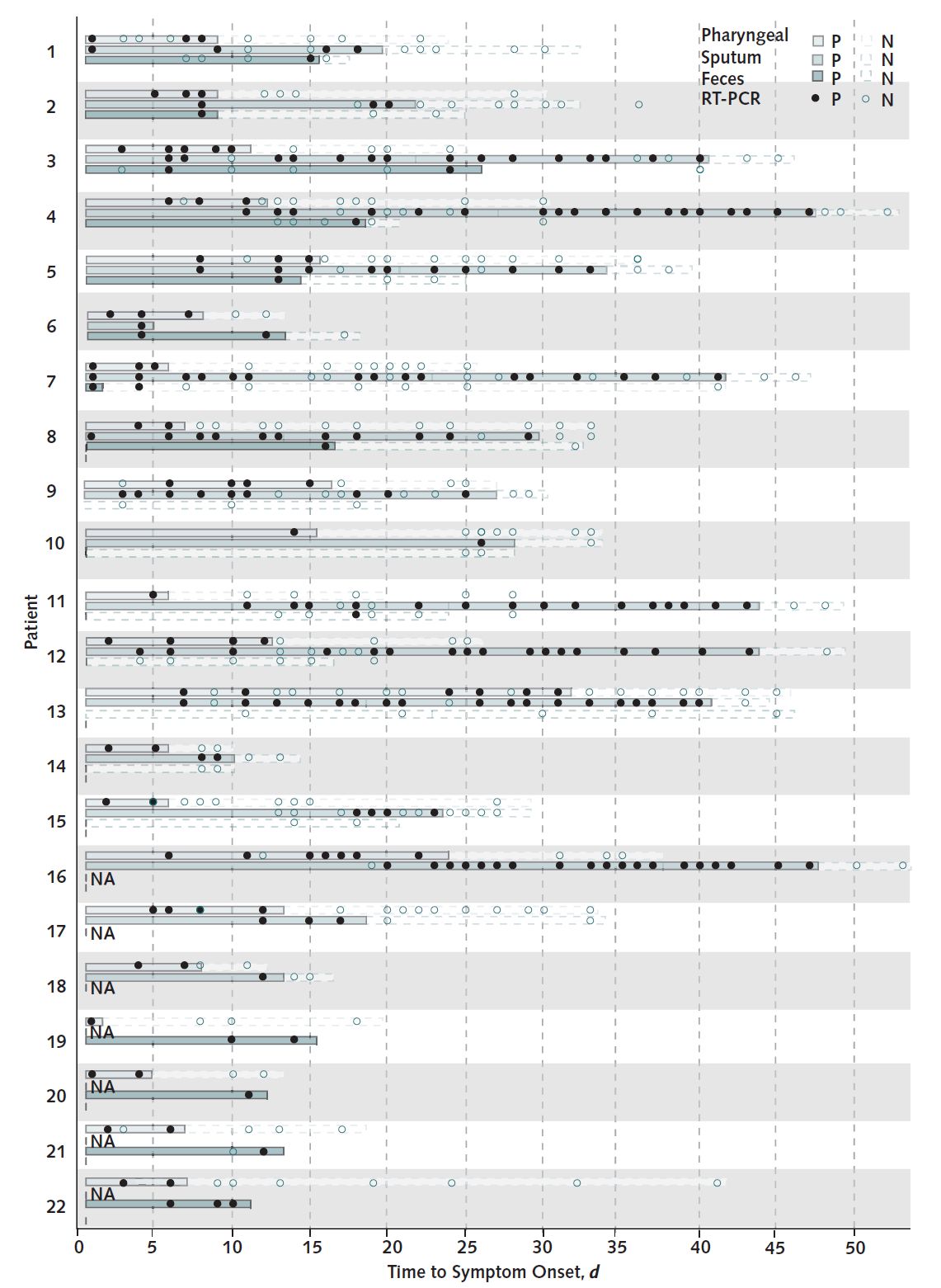A preprint from Chinese researchers in Annals of Internal Medicine. Note that this is a preliminary study and would probably benefit from more rigorous followup.
Should also note that these tests are just detecting viral RNA which in and of itself should not be taken to indicate the possibility of transmission.
Of Concern: In #Covid19 recovered patients, sputum & feces remained +ve for SARS–CoV2 up to 39 & 13 days, resp.,(qPCR) after the pharyngeal samples were -ve.@atscommunity
— Sairam Jabba (@SairamJabba) April 2, 2020
SARS-CoV-2–Positive Sputum and Feces After Conversion of Pharyngeal Samples in pat..https://t.co/Mw3fUi4ug5
The summary of results was
We collected 545 specimens from 22 patients, including 209 pharyngeal swabs, 262 sputum samples, and 74 feces samples. In these patients, sputum and feces remained positive for SARS–CoV2 on RT-qPCR up to 39 and 13 days, respectively, after the obtained pharyngeal samples were negative.
This figure shows the 22 patients in the study. A filled black dot means a positive RT-PCR test while an unfilled dot means a egative RT-PCR. For each patient the top bar is the pharyngeal series, the middle is the sputum series, and the bottom is fecal.

In terms of limitations the samples for each series weren’t necessarily collected at the same time or on a pre-defined schedule.
Limitations of our study are that it is based on a convenience sample and that serial samples were not obtained from each patient on a defined schedule. These results warrant further study, including the systematic and simultaneous collection of samples from multiple body sites and evaluation of infectious risk.
